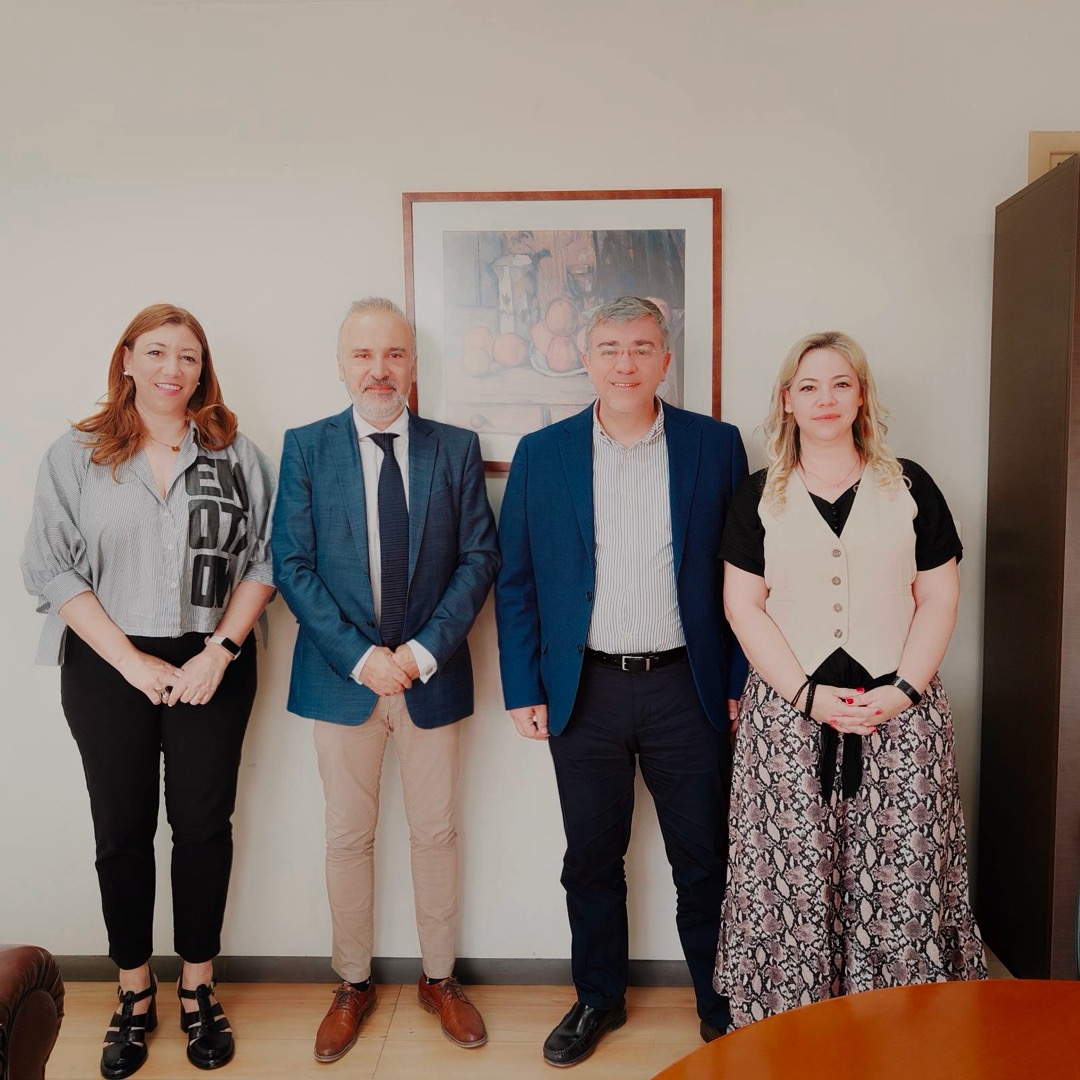Innovative Actions for Agro-Food Waste Management and Practical Enhancement of the Bioeconomy
The Ministry of Environment and Energy (MEEN) and the Hellenic Mediterranean University (HMU) have entered into a Memorandum of Collaboration aiming to strengthen the Circular Economy in the agro-food sector, within the framework of the European project LIFE-IP CEI-Greece – Implementation of the Circular Economy in Greece.
The signing ceremony, took place at the Ministry of Environment in the presence of ministry officials and scientific collaborators from MEEN and HMU. During the event, Mr. Manolis Grafakos, the Secretary-General for Waste Management Coordination at MEEN, stated:
“Our collaboration with HMU marks another step toward the practical implementation of the circular economy in Greece’s agro-food sector. Through the LIFE-IP CEI Greece project, we support, among other things, initiatives that transform agro-food waste into valuable resources, while also promoting local development and innovation. Our overarching goal is to foster a model of sustainable production and consumption, —centered on prevention, resource utilization, and strategic cooperation.”
Professor Mr. Thrasyvoulos Manios, scientific coordinator of the voluntary alliance on behalf of HMU, remarked:
“It is a great pleasure and honor for our team at HMU to sign this Voluntary Alliance with MEEN as part of such a significant project, LIFE-IP CEI-Greece – Implementation of the Circular Economy in Greece. This collaboration allows us to promote the idea of the circular economy in the agro-food sector, and at the same time offer agro-industrial units across the country—and especially in Crete—the chance to rethink their approach to waste, treating and managing it as raw material for high-value-added products of.”
The collaboration between MEEN and HMU is of strategic significance, as HMU brings substantial research expertise and applied experience in circular economy and sustainable biowaste management. Notably HMU’s partnerships with local businesses for the production of animal feed and compost from organic waste showcase the real-world potential of scientific research. Given Crete’s strong agro-food profile, HMU’s presence in the region provides a critical link between academic knowledge and local application—making its collaboration with MEEN particularly impactful for advancing sustainable waste management practices. Specifically, through the Voluntary Agreement the partners will:
- Exchange know-how and best practices for the prevention and valorization of agro-food waste;
- Develop localized waste management plans tailored to regional needs;
- Facilitate investments in the circular economy sector, leveraging national and EU funding;
- Raise awareness and engage local communities and stakeholders.
On HMU’s side, the initiative will be led by the Laboratory of Utilization of Natural Resources and Agricultural Engineering of the Department of Agriculture, School of Agricultural Sciences at the Hellenic Mediterranean University.
Attendees at the signing ceremony included: Ms. Fennia Galliou and Ms. Angeliki Maragaki (Scientific Associates of HMU), Ms. Sofia Mani (Project Coordinator and Head of the Waste Management Department at MEEN), Ms. Mary Plati (Project Manager, MEEN), Ms. Fay Nakou (Expert, MEEN), Ms. Maria Tsakona (Special Associate, MEEN), and Ms. Katerina Ladopoulou (Communications, Events & Public Relations, MEEN).
This initiative is part of Action C.5 of the LIFE-IP CEI Greece project (development of local/regional alliances for agro-food waste management), which promotes the implementation of the circular economy in Greece through voluntary agreements with production and research entities.
The Memorandum of Collaboration remains open to additional organizations that wish to participate, strengthening the collective effort for a circular economy with zero waste and new development opportunities.
### END ###
About the “LIFE-IP CEI-Greece – Implementation of the Circular Economy in Greece” Project
The LIFE-IP CEI-Greece Implementation of the Circular Economy in Greece project aims to contribute to the implementation of the National Waste Management Plan, the National Waste Prevention Program, and the National Circular Economy Strategy. This initiative promotes a new approach to waste management based on circular economy principles by adopting best practices and behavioral changes to extend product lifecycles, convert waste into resources, and effectively implement the EU’s waste legislative package.
More information about LIFE-IP CEI-Greece – Circular Greece “Νo time to waste ” is available at the project’s website: www.circulargreece.gr , and on social media:
- https://www.facebook.com/CircularGreece/
- https://twitter.com/CircularGreece
- https://www.linkedin.com/company/life-ip-cei-greece-circular-greece/
- https://www.instagram.com/circulargreece/
- https://youtube.com/@circulargreece
Read here the Press Release

